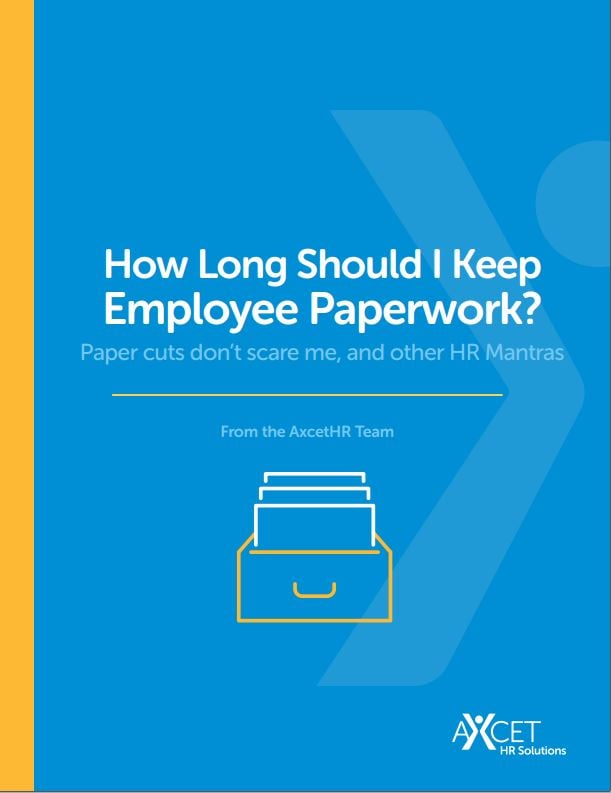How Long Should You Keep Bankruptcy Paperwork?

Bankruptcy can be a daunting process, often filled with legal jargon, numerous documents, and overwhelming paperwork. One crucial aspect that those filing for bankruptcy often overlook is the proper management and retention of related documentation. How long should you keep bankruptcy paperwork? This blog post delves into this question, exploring not only the legal requirements but also best practices for record-keeping to protect your financial future and facilitate a smoother recovery post-bankruptcy.
The Legal Perspective on Record-Keeping

When you file for bankruptcy, you’re essentially engaging with the legal system, and like any legal process, proper documentation is key. Here’s how long different types of bankruptcy-related documents should be kept:
- Bankruptcy Discharge Order - This is perhaps the most crucial document in your bankruptcy case, officially discharging you from your debts. You should keep this document indefinitely, as it serves as proof of your discharged debts.
- Petition and Schedules - The paperwork detailing all your assets, liabilities, income, and expenses should be kept for at least 7 years. This period aligns with the statute of limitations for challenging a bankruptcy discharge, after which the likelihood of such events decreases significantly.
- Proof of Claims and Notices - Any proofs of claims from creditors and official notices from the court should also be kept for at least 7 years. These documents provide a record of creditors' claims against you.
- Correspondence with Creditors and Trustees - All communications should be retained for 7 years to document any agreements or actions taken during the bankruptcy process.
Why Keep Bankruptcy Paperwork?

Understanding the importance of keeping your bankruptcy documents can help underscore the value of diligent record-keeping:
- Future Lending Opportunities - Lenders often inquire about past bankruptcies during credit assessments. Having your records can expedite this process or aid in explaining your financial history.
- Legal Protection - In case of any disputes or issues regarding discharged debts, your documentation can serve as proof that these matters have been legally settled.
- Credit Repair - Bankruptcy stays on your credit report for up to 10 years. Keeping your records can assist in repairing your credit, as you'll have a detailed account of your financial journey.
Best Practices for Managing Bankruptcy Documentation

Here are some best practices to ensure you manage and organize your bankruptcy documents effectively:
- Create a Dedicated File - Designate a specific folder, whether physical or digital, for all your bankruptcy-related documents. This makes retrieval straightforward.
- Use Scanners and Digital Storage - Digitize your documents to reduce physical clutter and ensure accessibility. Ensure digital copies are backed up securely.
- Labeling - Clearly label files with descriptions and dates. For digital files, consider using naming conventions like "[Document Type]_[Year]_[Date].pdf".
- Retention Schedule - Follow a document retention schedule to know when each document can be safely disposed of, reducing clutter while retaining essential records.
Post-Bankruptcy Record Management

After the bankruptcy is discharged, your focus should shift to life post-bankruptcy, but remember:
- Monitor Your Credit - Use your documentation to check the accuracy of your credit reports. Errors can delay your financial recovery.
- Re-establish Credit - With accurate records, you can effectively approach lenders for new credit lines or loans.
- Follow-Up with Creditors - Keep track of any settlements or agreements made with creditors during bankruptcy to ensure they're honored.
⚠️ Note: Do not discard documents you're unsure about. Consult with your bankruptcy attorney if in doubt.
As you navigate life after bankruptcy, the management of your paperwork is crucial not just for legal compliance but also for your financial health. Understanding the required retention periods and organizing your records can help in multiple ways:
- Provide Proof of Discharge - Having your discharge order readily available is a straightforward way to validate your bankruptcy status to any entity, from potential lenders to former creditors.
- Facilitate Credit Repair - Your records offer a detailed history of your financial situation, making it easier to correct inaccuracies or to provide context to creditors when applying for new credit.
- Prepare for Future Legal Challenges - In rare cases where there might be disputes regarding your bankruptcy discharge, having all the related documents in order can provide solid legal protection.
In summary, keeping bankruptcy paperwork serves both legal and practical purposes. It's not just about adhering to legal obligations but also about ensuring you can move forward post-bankruptcy with confidence. By retaining the necessary documents for the appropriate periods, you create a solid foundation for financial recovery, credit repair, and protection from future legal or financial disputes.
Can I destroy my bankruptcy documents after the 7-year period?

+
While you can legally destroy most bankruptcy documents after 7 years, it’s advisable to keep crucial documents like the discharge order indefinitely. Always consult with your attorney for personalized advice.
What if I lost some of my bankruptcy documents?

+
Contact the court where you filed your bankruptcy for certified copies of lost documents. Alternatively, check with your attorney or trustee, who might have duplicates.
How often should I review my bankruptcy documents?

+
An annual review of your bankruptcy documents, especially when applying for credit or loans, can be beneficial. It ensures they’re accessible and gives you a chance to update your records.